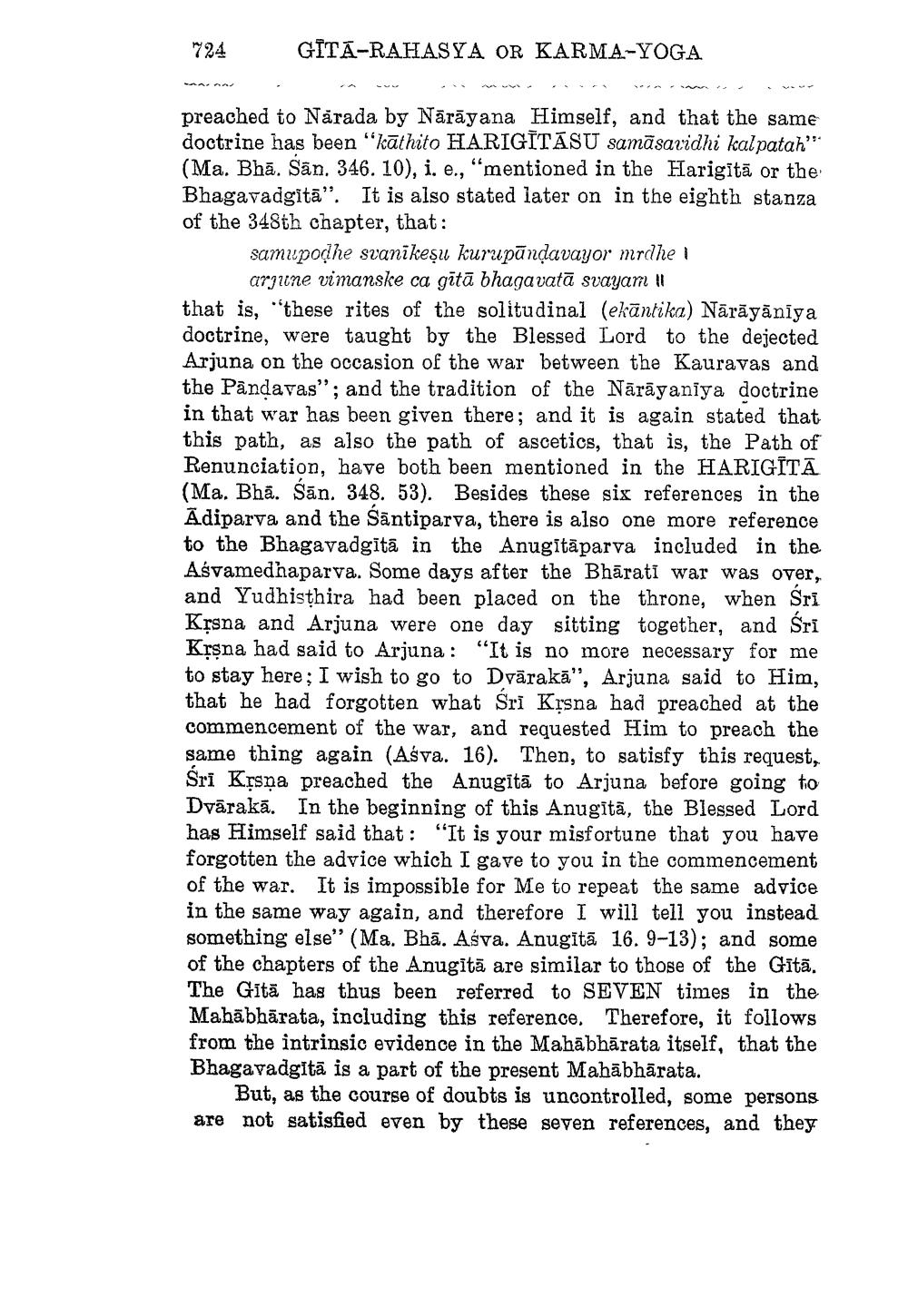________________
1724
GITA-RAHASYA OR KARMA-YOGA
preached to Närada by Nārāyana Himself, and that the same doctrine has been "kāthito HARIGĪTĀSU samāsavidhi kal patah" (Ma. Bhā. Sān. 346. 10), i. e.,"mentioned in the Harigitā or the Bhagavadgitā". It is also stated later on in the eighth stanza of the 348th chapter, that:
samupodhe svanikeșu kurupāndavayor mrdhe i
argune vimanske ca gitā bhagavatā svayam 1 that is, these rites of the solitudinal (ekāntika) Nārāyānīya doctrine, were taught by the Blessed Lord to the dejected Arjuna on the occasion of the war between the Kauravas and the Pandavas"; and the tradition of the Nārāyaniya doctrine in that war has been given there; and it is again stated that this path, as also the path of ascetics, that is, the Path of Renunciation, have both been mentioned in the HARIGĪTĀ (Ma. Bhā. Sān. 348. 53). Besides these six references in the Adiparva and the Sāntiparva, there is also one more reference to the Bhagavadgitā in the Anugitāparva included in the Aśvamedhaparva. Some days after the Bhārati war was over, and Yudhisthira had been placed on the throne, when Sri Krsna and Arjuna were one day sitting together, and Sri Krsna had said to Arjuna: "It is no more necessary for me to stay here; I wish to go to Dvārakā", Arjuna said to Him, that he had forgotten what Sri Krsna had preached at the commencement of the war, and requested Him to preach the same thing again (Aśva. 16). Then, to satisfy this request, Sri Krsna preached the Anugītā to Arjuna before going to Dvārakā. In the beginning of this Anugitā, the Blessed Lord has Himself said that: "It is your misfortune that you have forgotten the advice which I gave to you in the commencement of the war. It is impossible for Me to repeat the same advice in the same way again, and therefore I will tell you instead something else" (Ma. Bhā. Aśva. Anugitā 16. 9-13); and some of the chapters of the Anugitā are similar to those of the Gītā, The Gītä has thus been referred to SEVEN times in the Mahābhārata, including this reference. Therefore, it follows from the intrinsic evidence in the Mahābhārata itself, that the Bhagavadgitā is a part of the present Mahābhārata.
But, as the course of doubts is uncontrolled, some persons are not satisfied even by these seven references, and they




